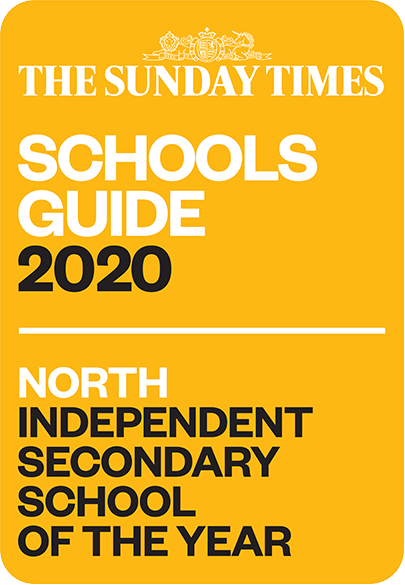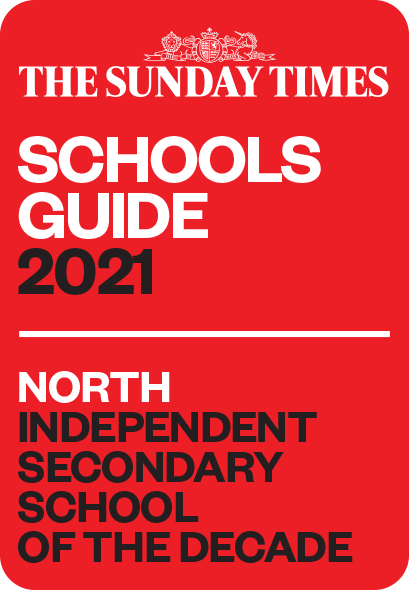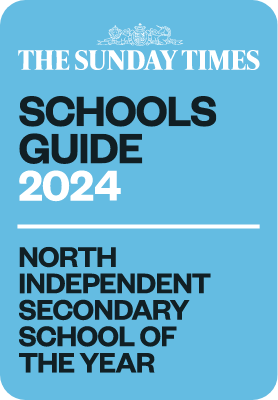Why study English literature?
English literature provides the skills needed for engaging analytically with the world. Literature students become critical thinkers, considering the motivations and implications of decisions made by individuals.
A-level English literature empowers students to think about how they personally connect with texts and appreciate how writing does not have one fixed meaning; interpretations can dramatically alter over time and can vary from one individual to another.
Human behaviour is as the heart of English literature; characters and voices drive everything about creative texts and humans are the most fascinating species!
What our students say
“Literature sometimes speaks more succinctly about reality than non-fiction does. English is a gateway to understand culture.” Cameron
“The lessons are enjoyable as you have the opportunity to discuss the texts in so much more depth than at GCSE. There is so much more variety too, and I’ve been introduced to new and interesting literature.” Harriet
“The course allows you to be creative and encourages you to share your ideas which helps understand different interpretations.”Avneet
“It’s fun, creative and just a really pleasant subject to take. You develop your essay writing skills and your close analysis skills which helps in other subjects too.” Charis
Entry requirements
Grade 6 in English literature at GCSE.
Potential courses
- English literature
- English
- Linguistics
- Combined arts – liberal arts
- Media studies/Film studies
- Journalism
- Medicine
- Politics
- Economics
- Dentistry
- Law
- Marketing
Potential careers
- Politics
- Journalist
- Teaching
- Law
- Management
- Researcher
- Accountancy
- Counselling services
- Marketing and promotion
- Publishing
The A-level course
| Unit | % of A-level | Content |
|---|---|---|
| Paper 1 | 40 | Written examination, studying Shakespeare, drama and poetry pre-1900 |
| Paper 2 | 40 | Written examination requiring close reading in chosen topic area, and comparative and contextual study from chosen topic area |
| Coursework | 20 | Close reading OR re-creative writing piece with commentary. Comparative essay |
Recent alumni
Will (2012 ) Policy Analyst at the Foreign Office
“After leaving GSAL, I read English at Cambridge before joining the Foreign & Commonwealth Office. Taking English literature A-level really helped me prepare for university and the world of work: it honed my close reading skills and taught me how to write well. But, maybe more importantly, it introduced me to some of the best writing in the English language, works which I continue to return to long after studying them.”
Chessy (2012) Strategy Consultant
“I work in strategy consultancy in London which involves working out the answers to some of the biggest challenges and opportunities for businesses in the UK and around the world. Before starting, I thought my job would be mostly about maths and data, but I’ve realised that words are actually just as important. I spend a lot of time working out how best to communicate answers to my team and clients as well as listening to the client and reading what they say about their business. English literature A-level set me up perfectly to handle this side of my career; it helped me to understand how language can and will be interpreted differently by different people and in different contexts. Spending time closely analysing texts means that I can now apply the methods I studied in my own writing and spoken presentations to ensure that my clients will read the correct meaning in what I am saying.”
Sophie (2013) Political Consultant in the City of London
“Whilst I did not study English literature at university, the A-level course gave me my first experience in formal essay writing and critical thinking – skills I found invaluable throughout my undergraduate and Master’s degrees. The ability to understand how one text can produce several, often wildly different, points of view is one I use every day in my job now, working in political consultancy in the City of London. Working in politics means being able to analyse a text, place it in its context, isolate the key evidence and use these to construct your argument – and to be able to defend it if someone else disagrees!”
Choose another course
- Art and design
- Biology
- Business studies
- Chemistry
- Classical civilisation
- Computer science
- Design technology
- Drama and theatre studies
- Economics
- English language
- English literature
- French
- Geography
- German
- Government and politics
- History
- Latin
- Mathematics/Further
- Music
- Physical education
- Physics
- Psychology
- Religious studies
- Sociology
- Spanish





